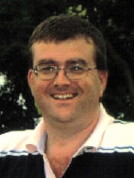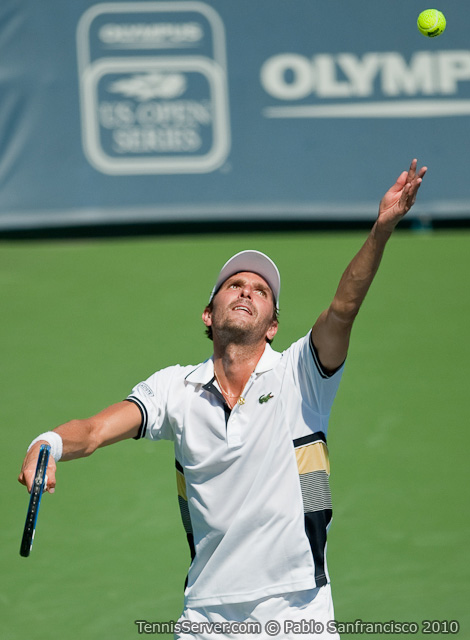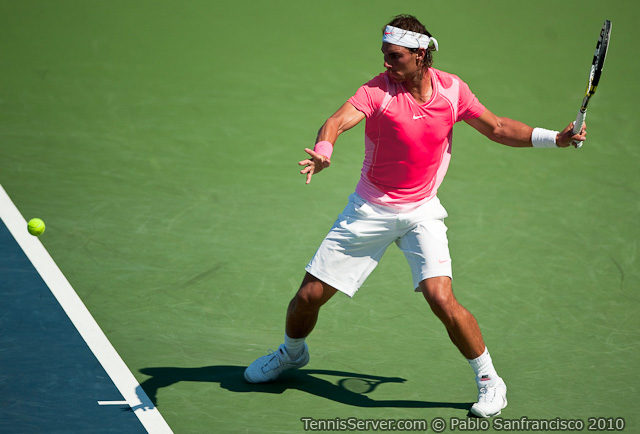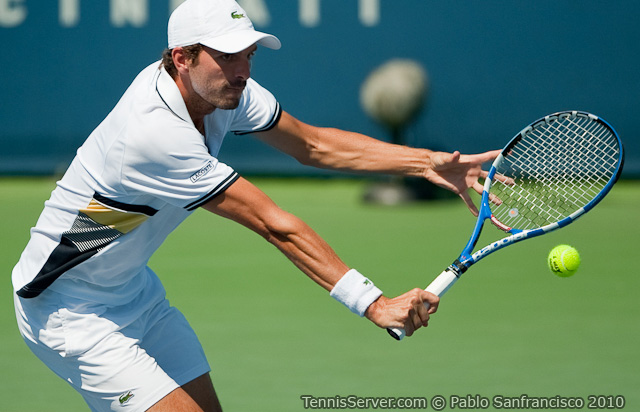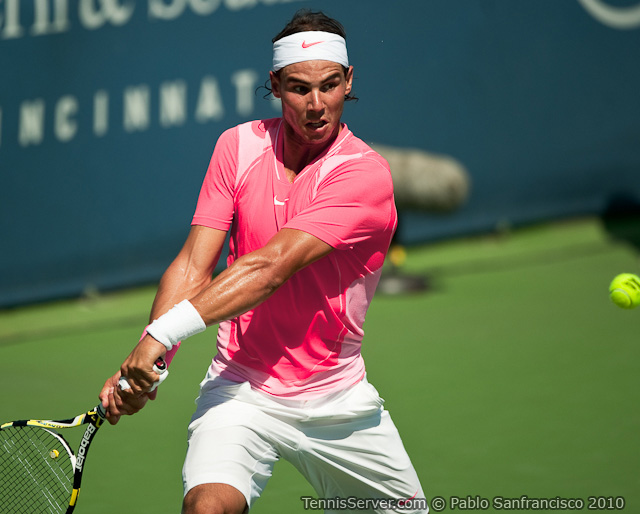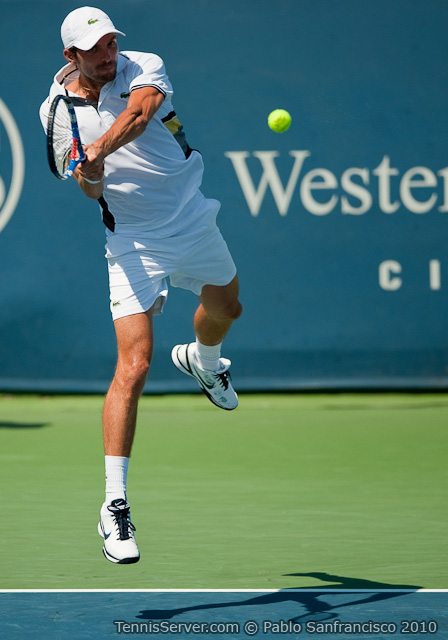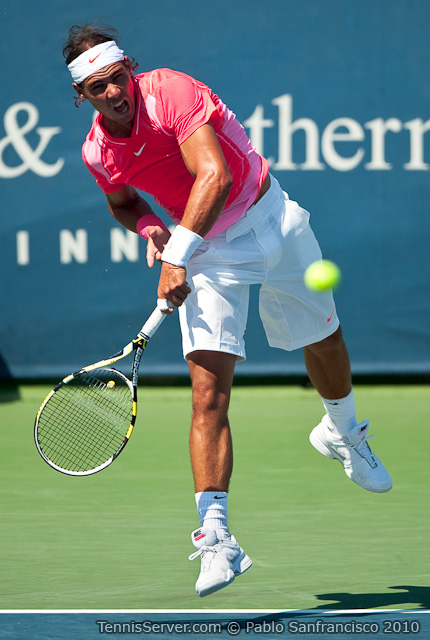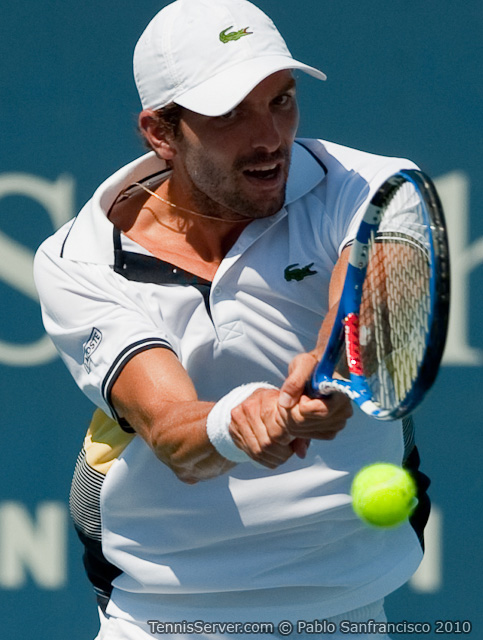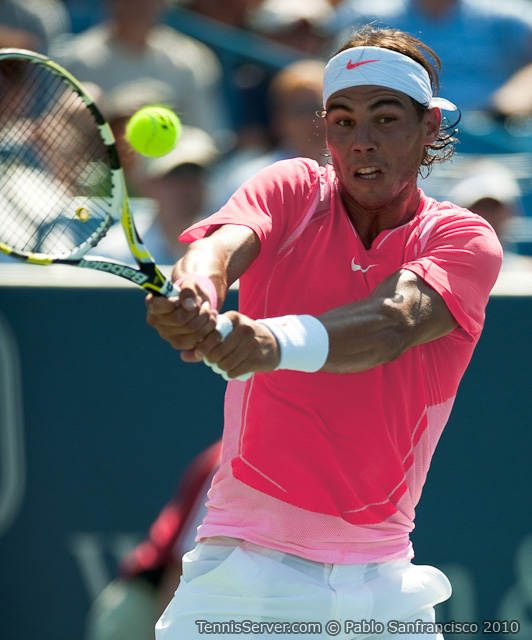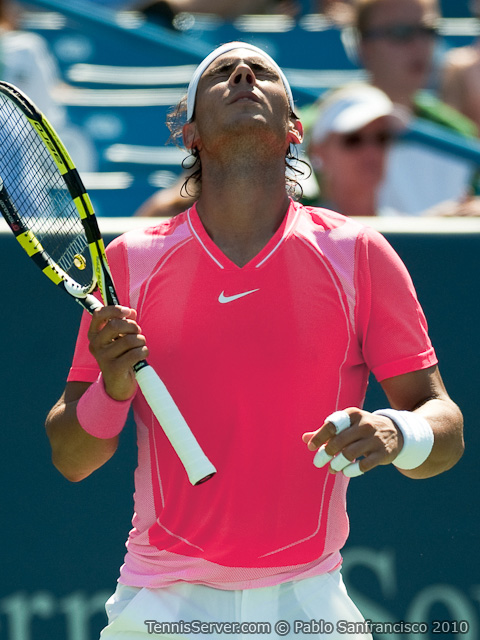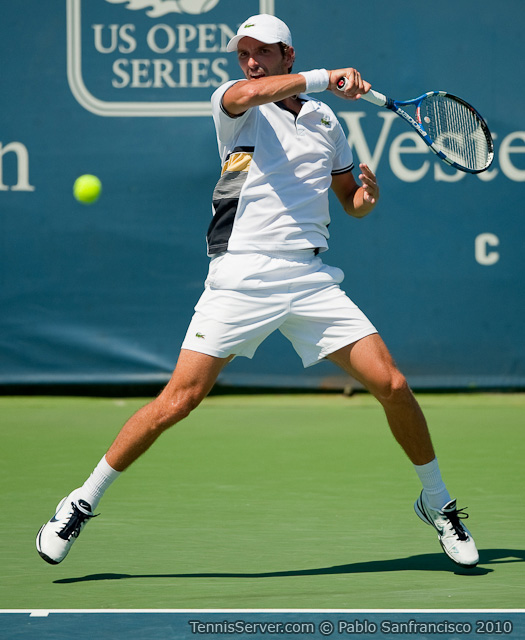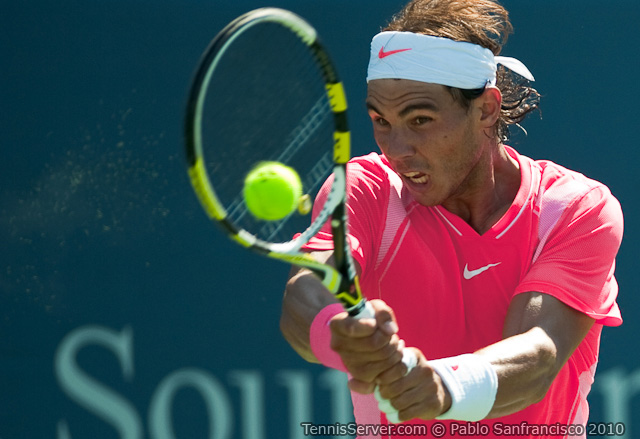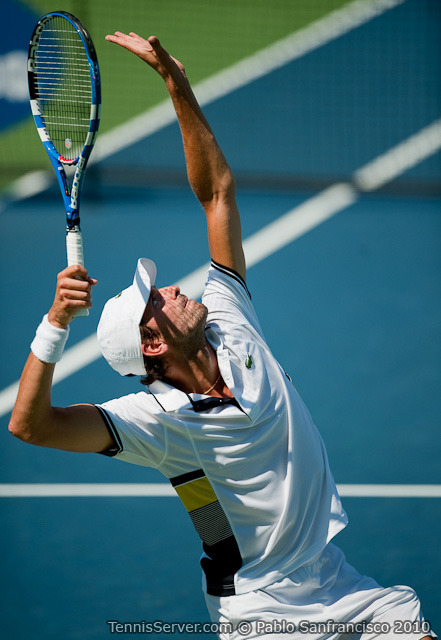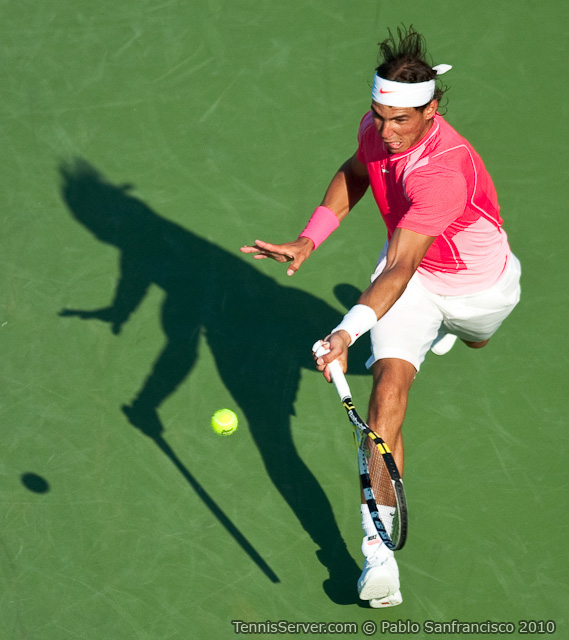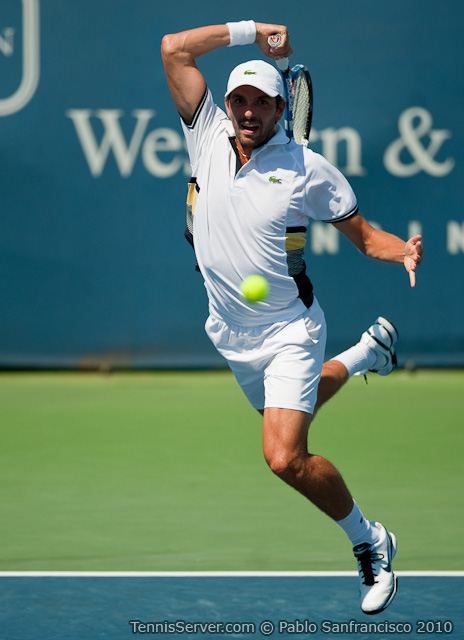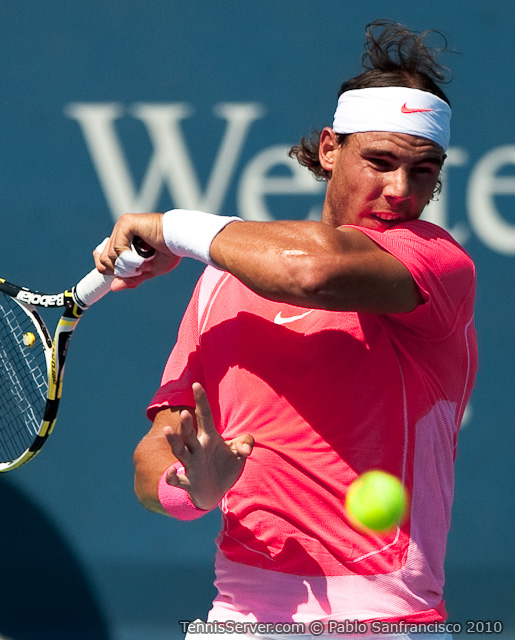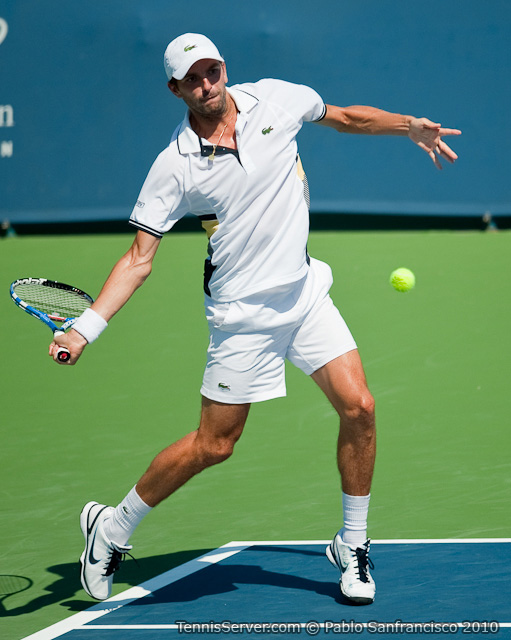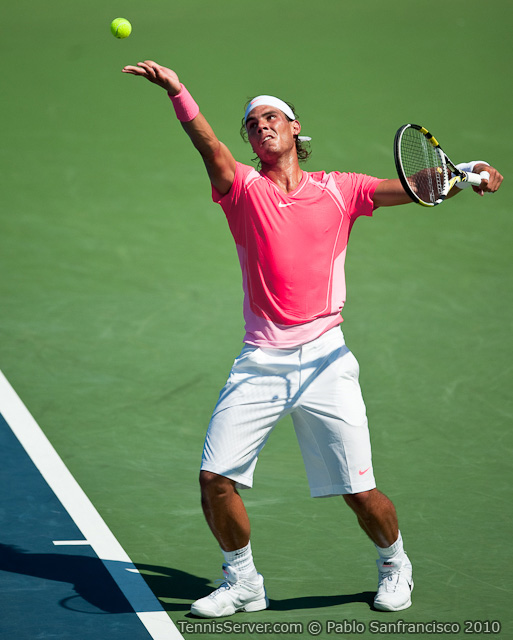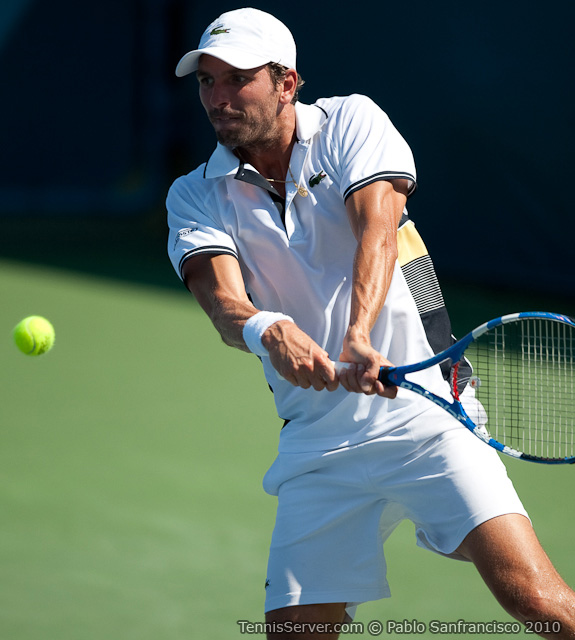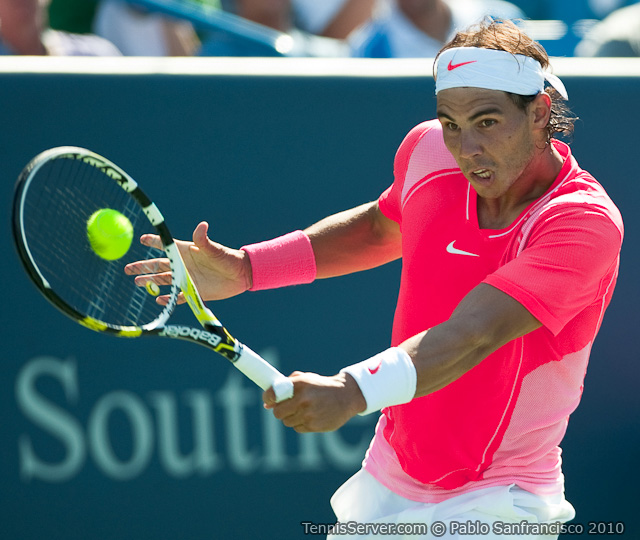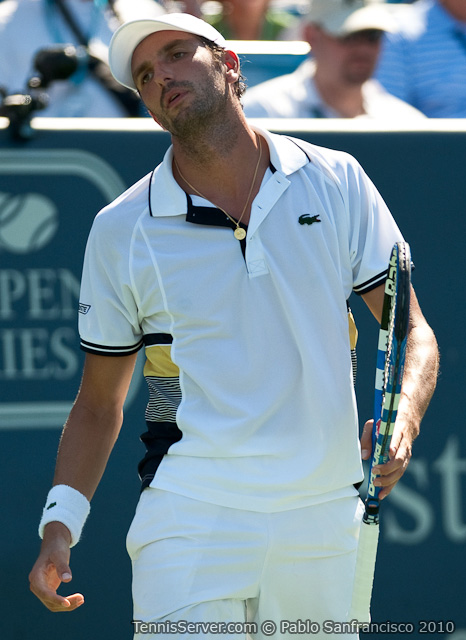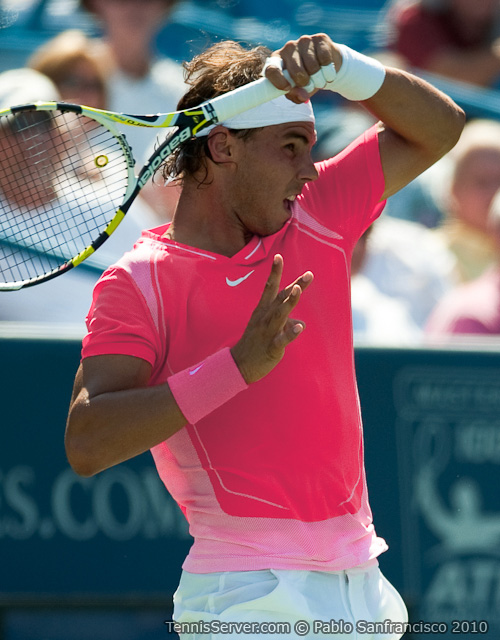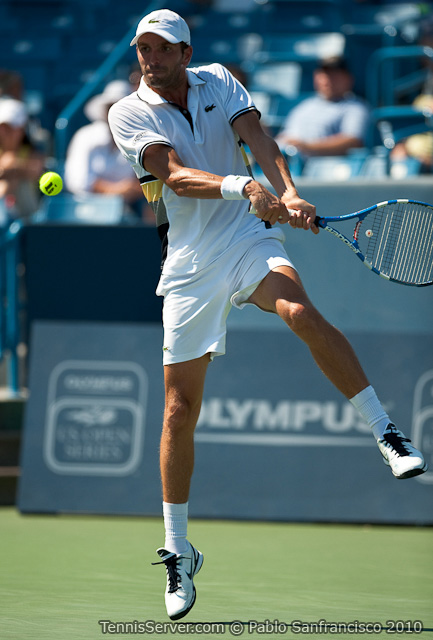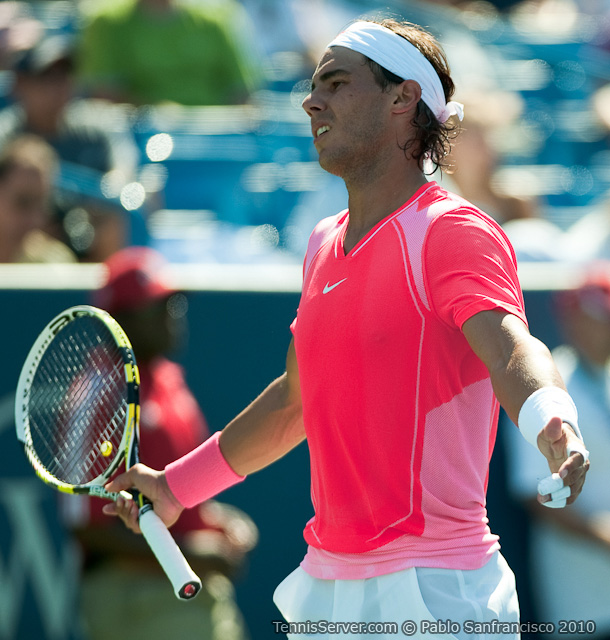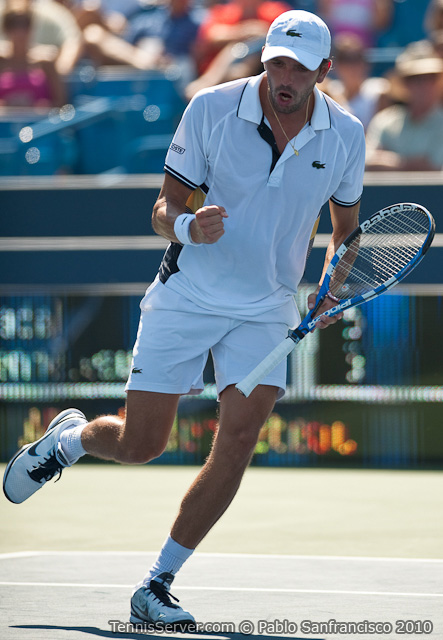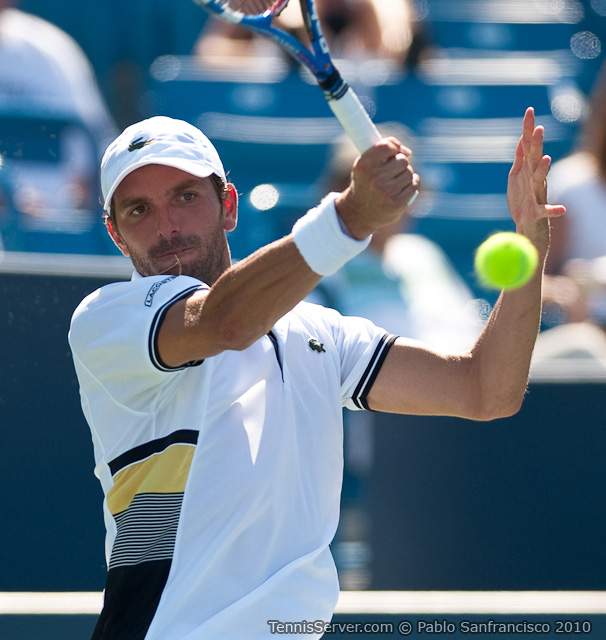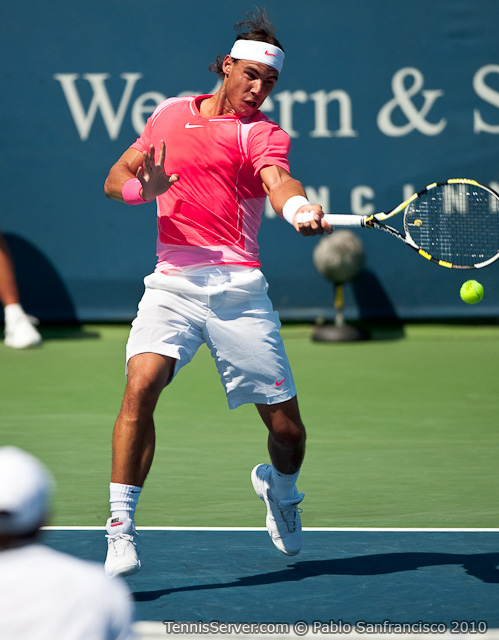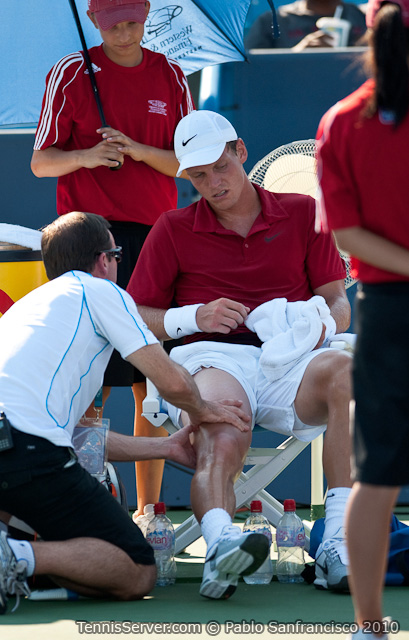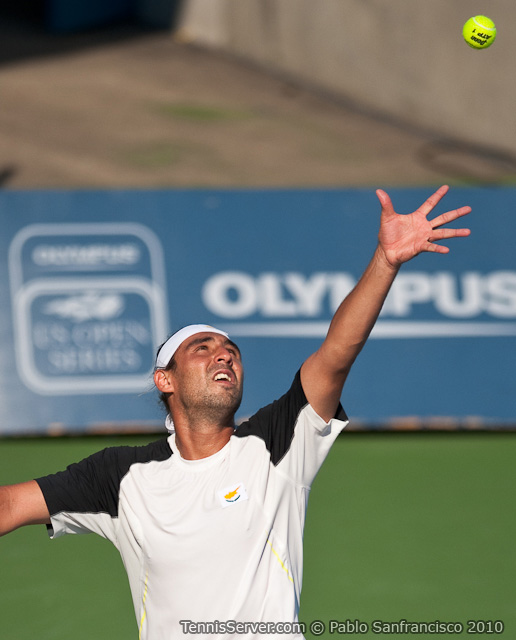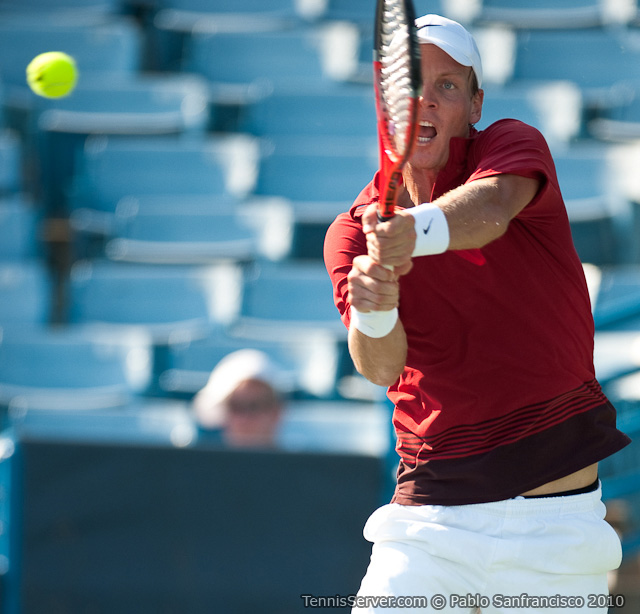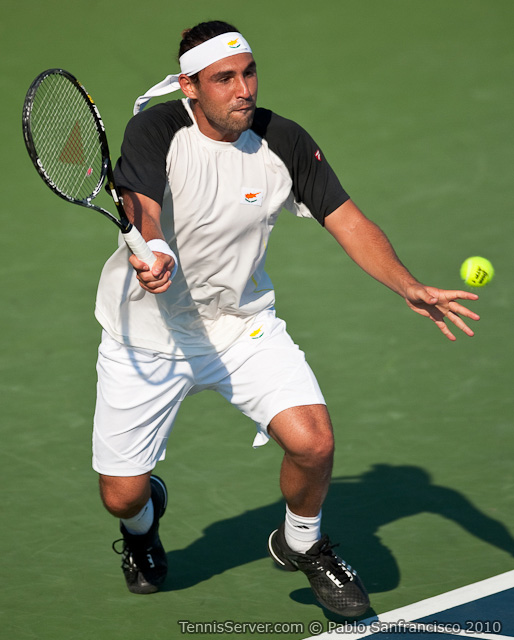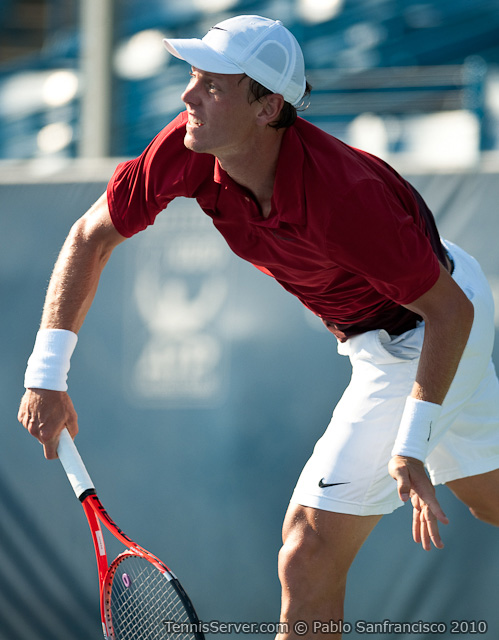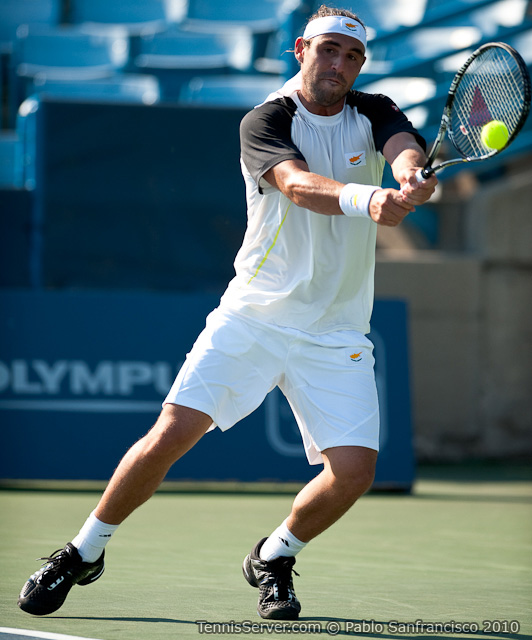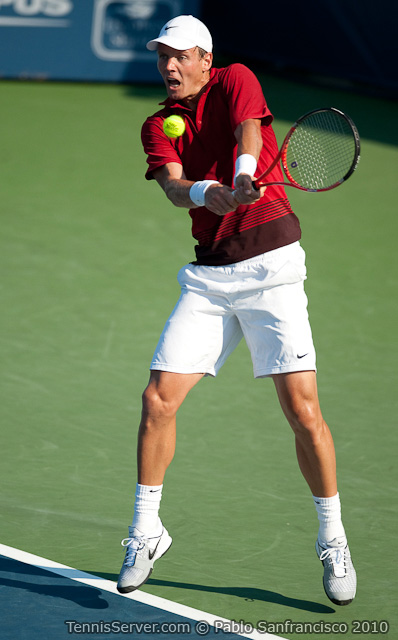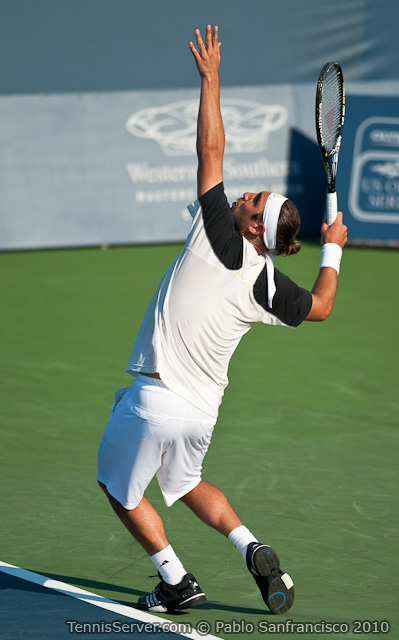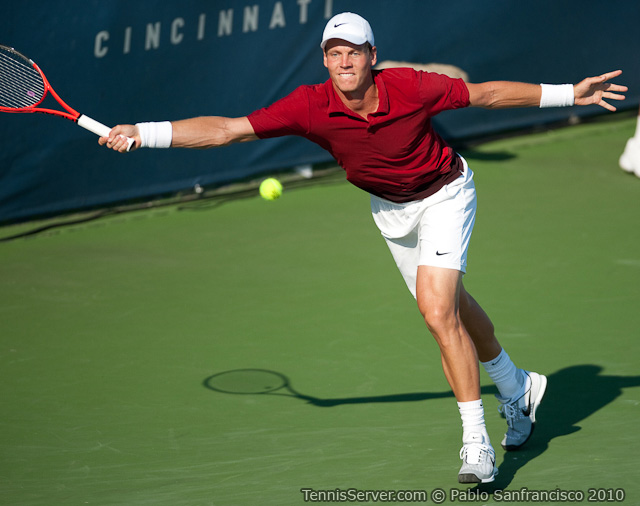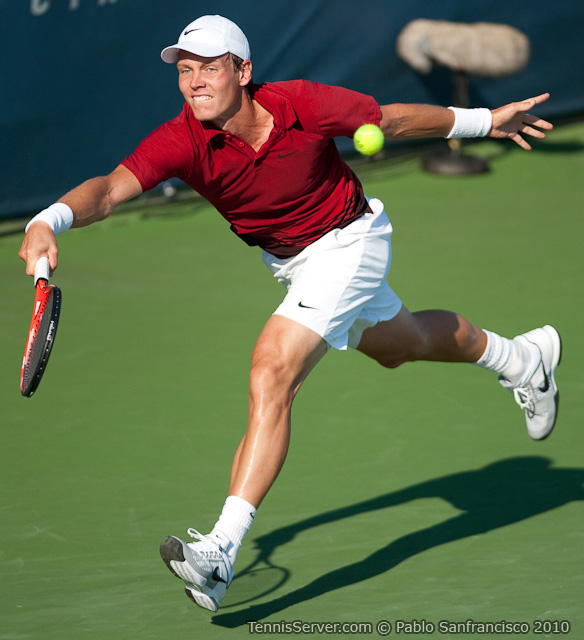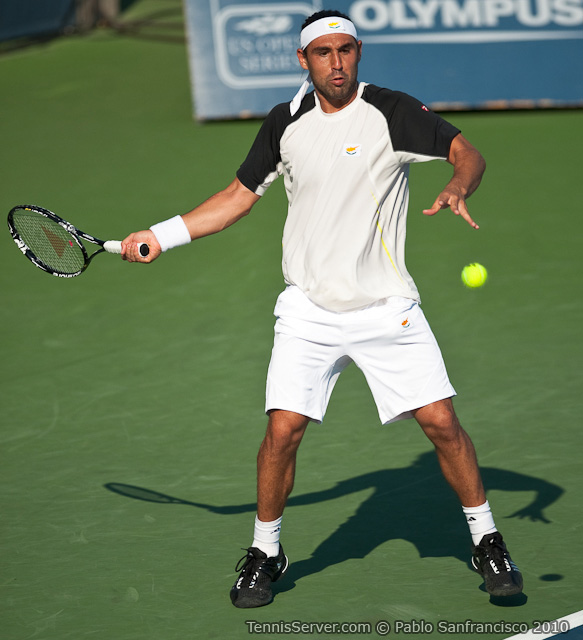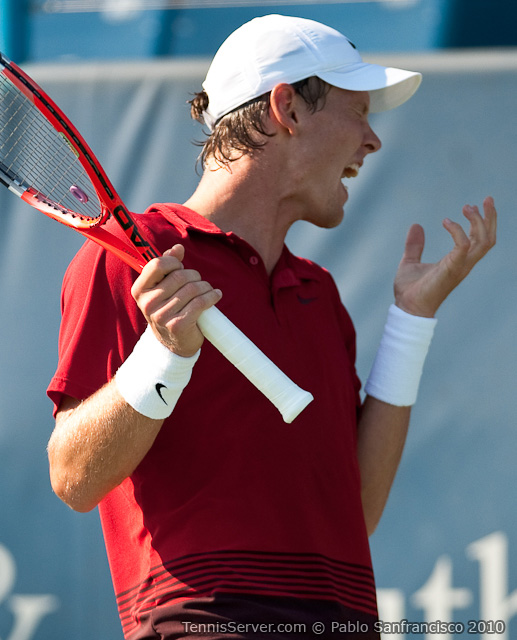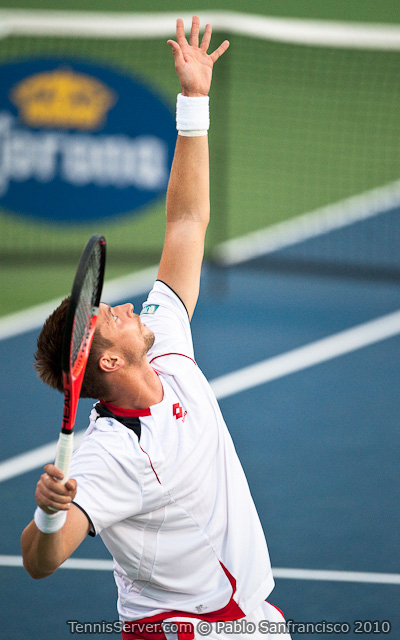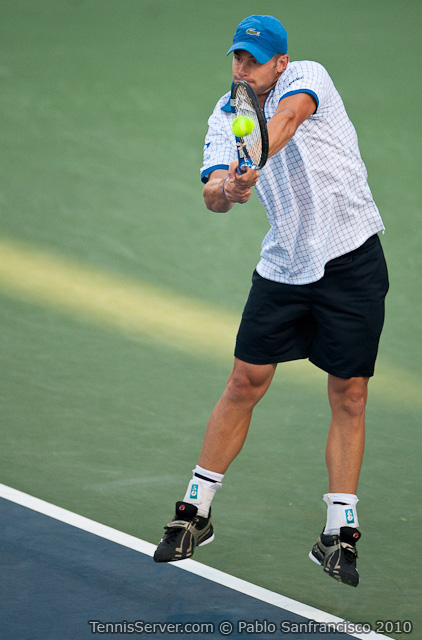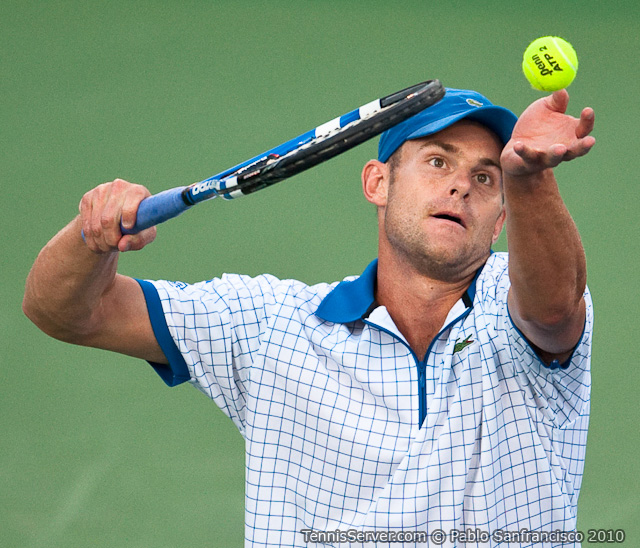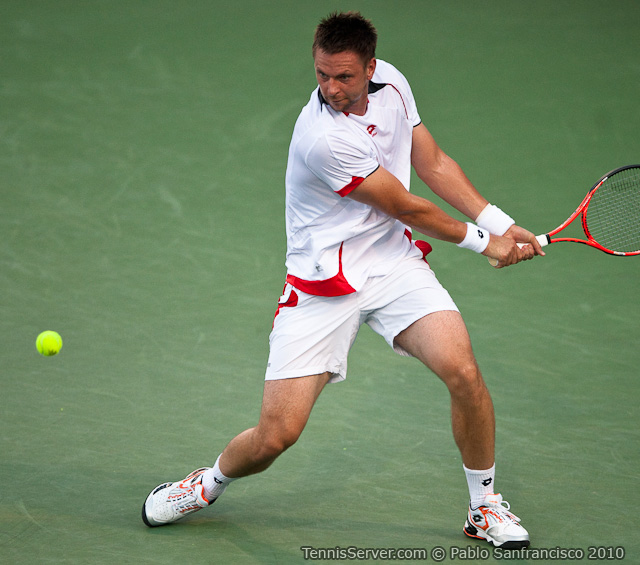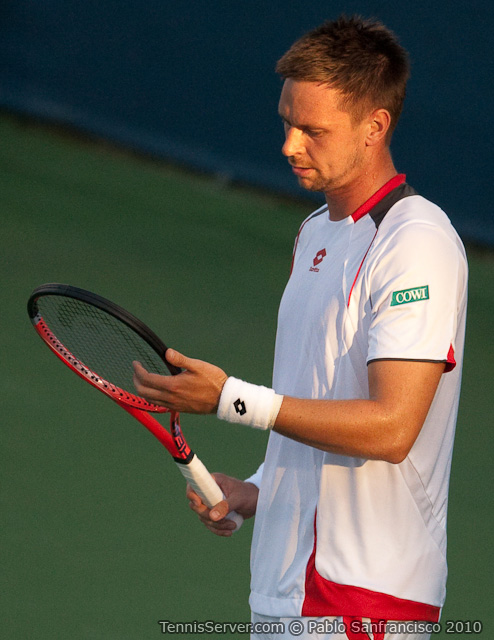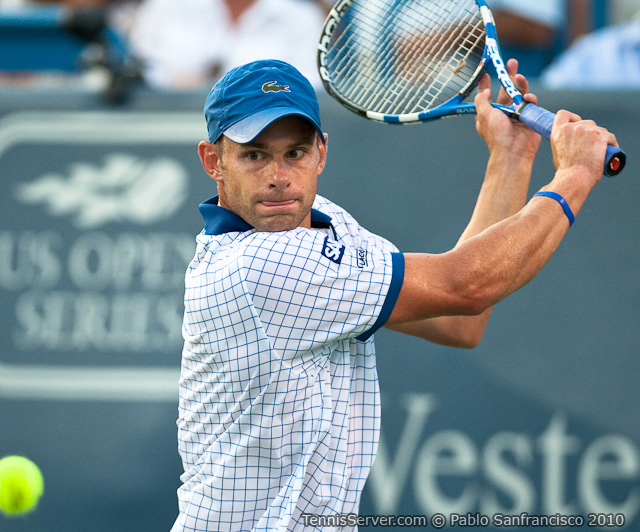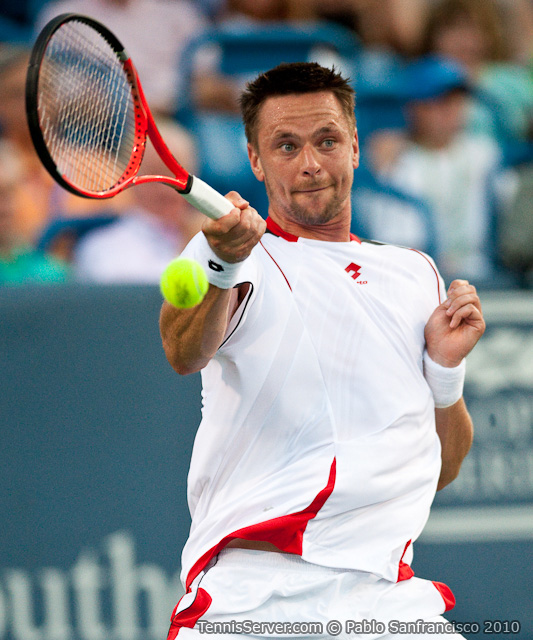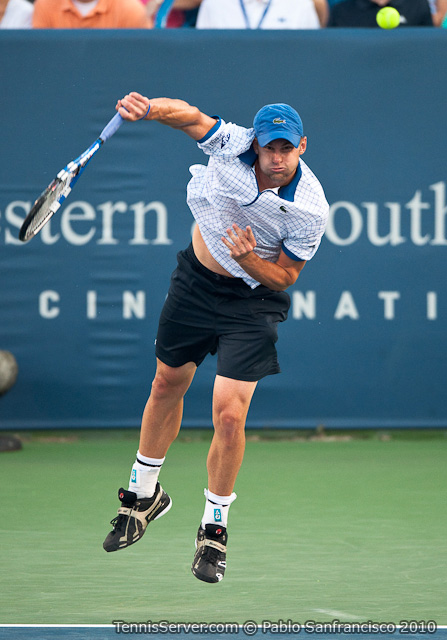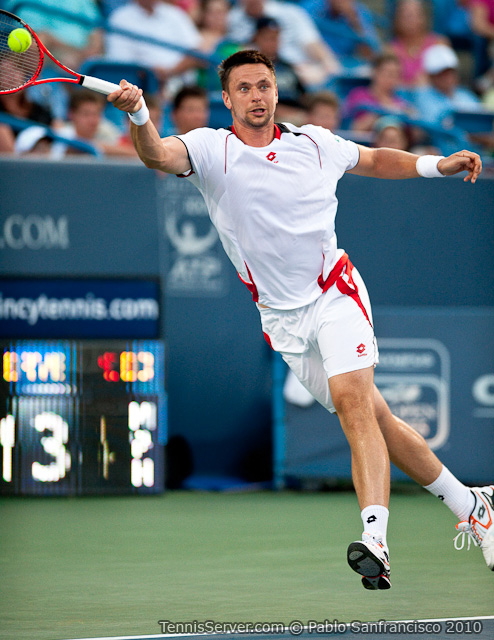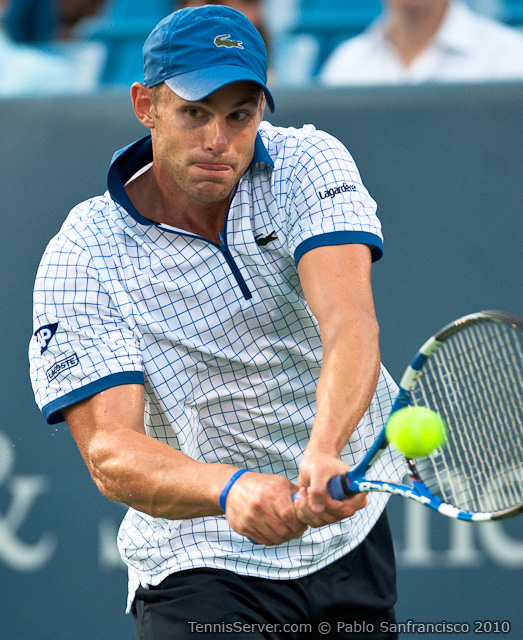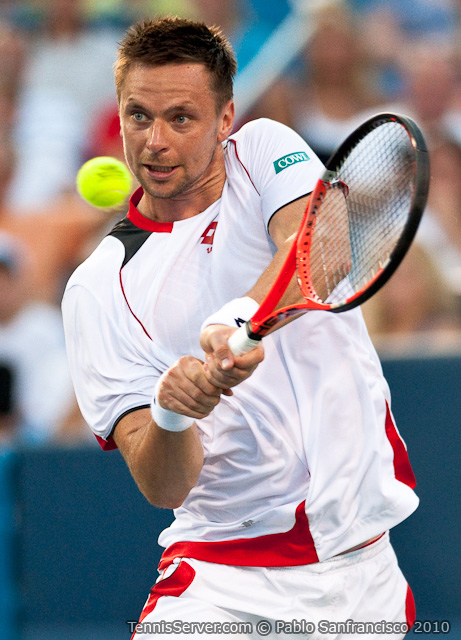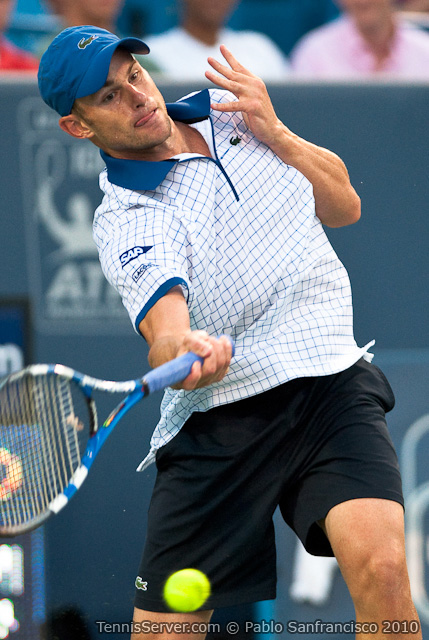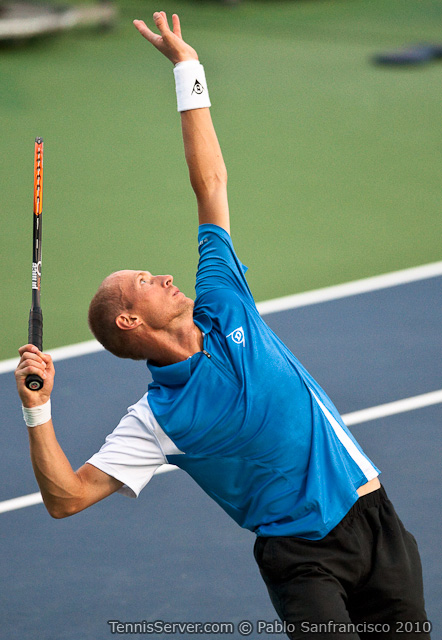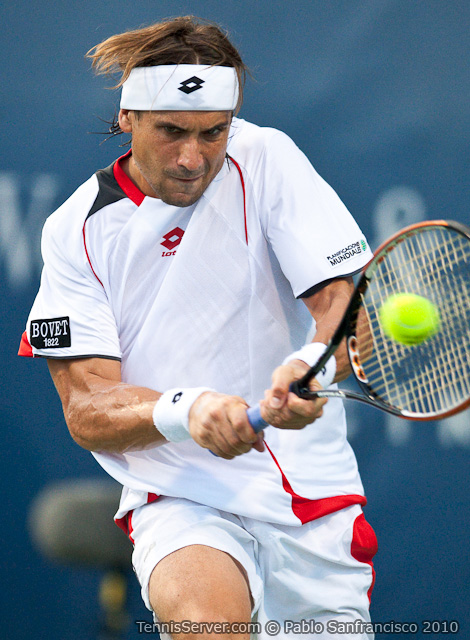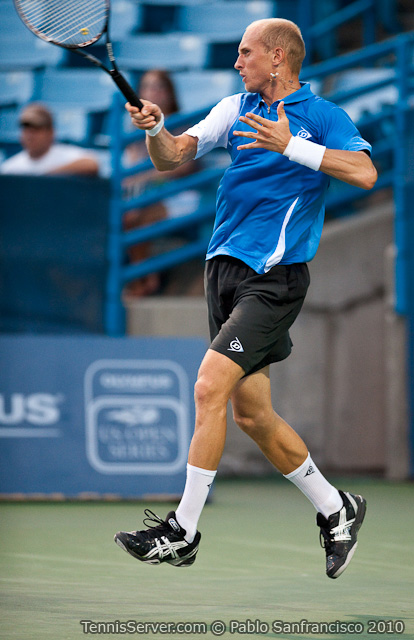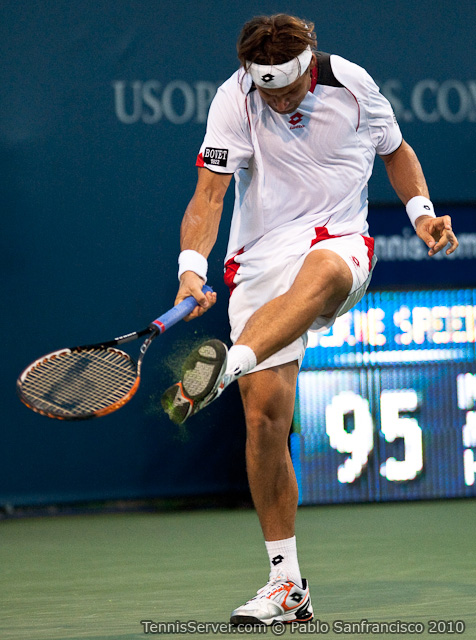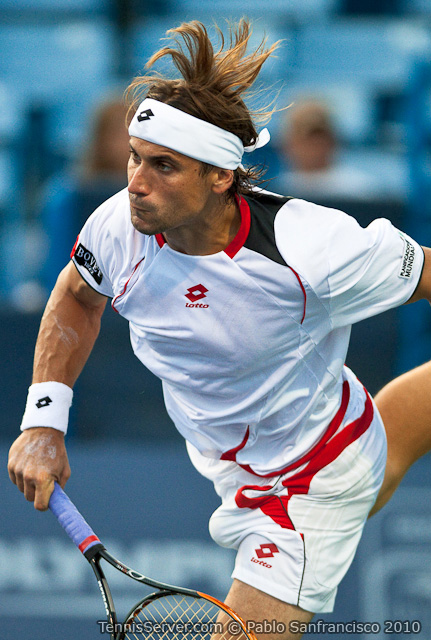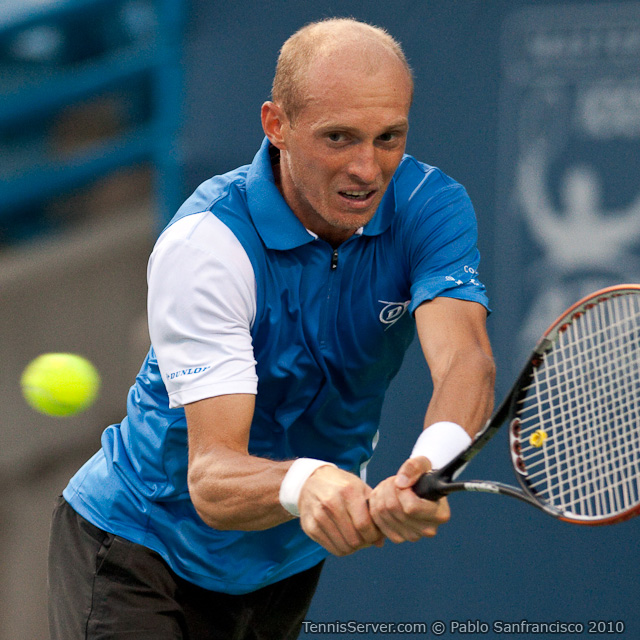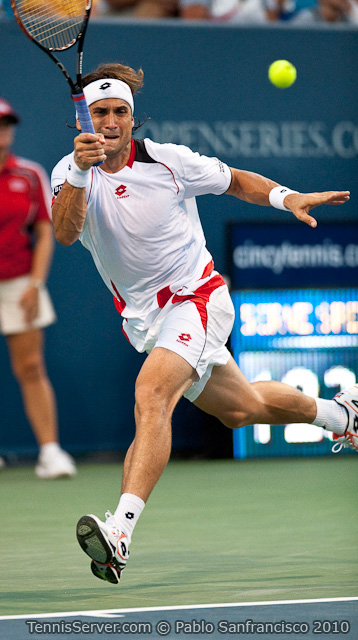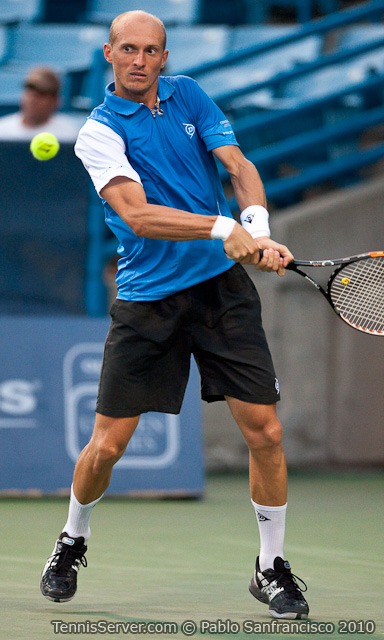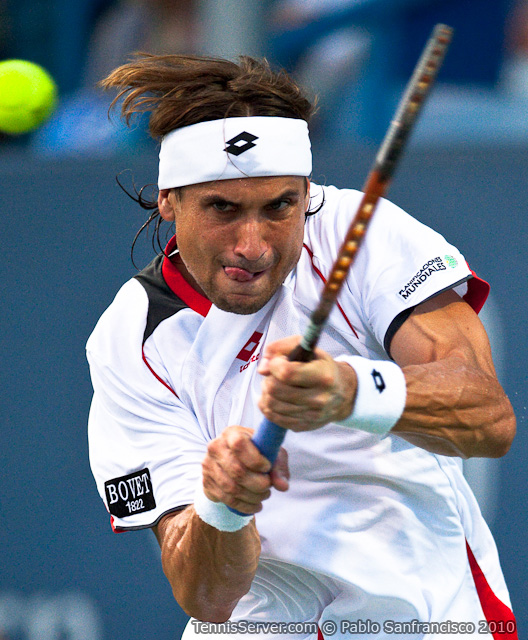Federer Walks, Roddick Talks, Murray Balks
The Round of 16 started today with four scheduled matches on center court and another four matches on grandstand court. Andy Murray started out the day's proceedings against Ernests Gulbis and this match went the distance with Murray narrowly prevailing 4-6, 6-3, 7-6 (4). About an hour after the end of this match, an exhausted looking Murray met with the media. Actually, exhausted doesn't quite adequately explain Murray's post match physical condition. He looked a little dazed, like he had spent a little too much time in a sauna which, in a sense, he had. "I played seven matches in nine days, every one of them between noon and 3 pm, which is obviously when it's at its warmest," Murray said. "I think everybody would be feeling like that in my position. Obviously I played a couple of long ones; this one was especially long. I'm hoping I'll get to play a later match tomorrow," Murray said. I asked him if he had officially requested the evening match and he replied that he did.
My follow-up question was what tournament officials told him about his request. Keep in mind that the tournament will give television whatever matches they want to see in order to generate the greatest possible audience. So, often they do not have total control of when certain matches get played. In this case, Murray said he was told that "the timing of his match depended on whether or not Mardy Fish loses his doubles," Andy said. "If he wins, they said they'll probably put me on first again. If he loses, then they might put me on later," Murray explained. Unfortunately for Andy, Mardy won his doubles match (teamed with Mark Knowles) over the duo of Lukas Dlouhy & Leander Paes, 6-3, 6-2. So, Andy's match against "surprise" quarterfinalist Mardy Fish will start at noon or possibly a little later as a doubles match leads off the proceedings at 10 am on center court Friday.
Andy's request for a later start was not an academic one and his particular plight indicates how difficult it is to play this game in the heat and humidity that characterize the North American hard court summer circuit. He looked like he could have fallen down, literally, at any moment. So, what did he need to do in order to recover for his quarterfinal match? "I had an ice bath yesterday evening. I'll probably have another one this evening. Massage, stretching, and then try and drink and eat as much as possible," Murray explained. "Today I was struggling. I felt a bit dehydrated on the court, which isn't really acceptable. You should make sure you've already drunk enough before you go on. So I'll try and drink as much as possible this evening," Murray said.
Murray might have been feeling some of the effects of heat exhaustion when he replied, without a trace of apparent sarcasm, that "tomorrow could be nice and cold; we don't know, so have to wait and see," Murray said. Then, turning a little more serious, he noted that turning down his request "makes it a bit harder to play in this particular tournament; certainly, I can't play my best tennis," Murray said. "You know, I'm spending a lot of time after the matches making sure I recover as best I can. All I can do is just hope the next day I feel better," Murray concluded. One thing I can guarantee is that tomorrow will be anything but nice and cold around here. His best shot for that kind of weather would be far south of the equator, like Rio Gallegos, Argentina, which is about as far south in that country as it is possible to go. The weather there on Friday is expected to reach a high of 50 degrees Fahrenheit under sunny skies; just in case you were curious, that's a distance of about 6,344 miles.
Returning to Murray's match with Gulbis, Andy chose to slow down several of his serves in order to throw off Gulbis' timing as well as conserve energy today. "I was struggling a little bit physically and I wasn't really pushing out to my serve that well," Andy explained. "So, I started making as many first serves as possible, and he actually struggled when I slowed it down into his body. He missed quite a few returns. When I was serving well, you know, going for big serves, he was actually returning very well. So I thought that slowing down a bit might help me out some and that's what you have to do against a player like him sometimes. When he's sort of seeing the ball well and you're giving him pace, he can generate a lot himself. When I slowed it to down, he struggled," Murray noted. He next plays Mardy Fish in the first quarterfinal of the day. Mardy defeated Richard Gasquet in straight sets, 7-5, 6-2.
The second Round of 16 match on center court featured Rafael Nadal against Julien Benneteau. Those two had only played twice previously but the last match was five years ago in the first round of the Australian Open. Nadal won that encounter in straight sets, 6-0, 6-4, 6-2. This match also went the distance and both players also played well. Nadal's first serve at 60% was a little better than Benneteau's mark of 58%, but perhaps more important was the fact that Nadal was able to break Julien's serve six times while he was broken five times. Nadal finally won today's encounter after narrowly dropping the first set, 5-7, 7-6 (6), 6-2. "I returned pretty well," Benneteau said. "This was my plan, to put some pressure on him, especially on his 2nd serve. This was important for me because he uses his big serve to set up his forehand. When he's doing that, it's almost impossible win the point. So at the beginning, I returned very well on his first serve and I was very aggressive, which surprised him, I think. Of course, he adapted and mixed up his serves a lot more than he had been doing. He would take the point with his forehand and then started to move me around on the court and he changed directions very effectively," Benneteau continued. "The balls would go right, left, right, left. After that, I had to be very aggressive on my serve to mix things up a little bit. That created some opportunities for me to go to the net, but I had to be careful when I chose to come in because if I came in with a poor shot, he could just pass me. So I had to be patient, wait for the right ball; and when I got it, hit it correctly to set up my volley," Benneteau concluded. Rafael next faces Marcos Baghdatis, a player that he has never lost to in six previous encounters.
Roger Federer has had a very easy tournament thus far. Last night, he played an abbreviated match against Denis Istomin who had to retire due to a right ankle injury as he was losing the first set, 5-2. Federer empathized with his opponent's injury and noted that the timing was not all that good and that he hoped that he would still be able to play in the U.S. Open. Today, Roger was scheduled to play Philipp Kohlschreiber, over whom he held a 5-0 edge in career head-to-head meetings. But Philipp had some problems in his right shoulder and had to withdraw from this event, giving Roger a walkover into the quarterfinals. That could be a good news / bad news proposition for Federer. The courts here play much faster than the ones in Toronto and he has not had much of an opportunity to play here this year. He faces Nikolay Davydenko, who has won two of their last three meetings. Still, you have to like Roger's chances in this matchup, which will be the third quarterfinal of the day on center court. Roger has dominated the series with a 13-2 edge in career head to head meetings.
The last Round of 16 match today had Andy Roddick against Robin Soderling. This was a full-tilt all out war of two giant-serving players who routinely can crank out serves in the mid 135 mph range. I can't imagine facing such a big server though of course, these guys have to do it periodically on tour, so in some sense they are used to it. But on critical points, Soderling would hit one of those serves down the T or out wide and all Roddick could do was just walk to the other side of the court. Despite the high number of aces each player threw down (Roddick had 26 while Soderling had 15 in a two hour and 44 minute match that went the distance), there was some excellent shot-making and point construction by both players as well. Roddick narrowly won this match 6-4, 6-7 (7), 7-6 (5), and the match included a significant degree of drama. Andy had several "inspired conversations" with the chair umpire over what I thought were disputed line calls but Andy refuted that notion.
"It had nothing to do with that specific instance. First and foremost, let me say that Robin didn't hear the call because it was a very meek call; therefore you can't challenge quickly," Andy said. "I completely understand that. So, Robin thought that he won the point, went back to his towel, came back, and then we heard the score, and then there was a challenge. So my simple question was, how long does a player have to challenge a line call? I've seen umpires tell players that you took too long before making the challenge and they won't let 'em challenge a call that is in question. So all I wanted was a number on what's too long to challenge," Roddick explained. "They said, a challenge has to be in a timely manner. I then asked him (the chair umpire) What's a timely manner? And he said that it was at his judgment. I then said, just give me a number; that's all I wanted was a number. You know, I ended up badgering him to where he said ten seconds, and then I just had another discussion with some other people from the ATP, and they said, well, you can challenge until the other guy serves," Roddick continued. "I said, Well that's like 22 seconds. So we're talking about a 12 second differential and no one still knows when you can challenge a call. That's it. I mean, I'm not asking for a miracle. I'm just asking for a specific time frame when you can challenge a call. Someone else suggested that we ought to let the hawk eye people just start a timer and have a buzzer go off when you can't challenge anymore if someone is thinking about it. I don't think you should be able to look at marks and then challenge. We all do it; we're all guilty of it because we can, but I don't think we should be able to. That was my only thing, was that I couldn't get a flippin' answer on what's a timely manner. Just give me a definition of that. So we just talked each other in circles for an entire switchover," Roddick said. It was an amusing site to witness, with Roddick gesticulating rather animatedly while the chair umpire appearing to be quite exasperated with him.
I then asked Andy what a match like this does for his confidence. "It's good. Any time you beat a guy that's 5 in the world, beat a couple guys in the top 40 and then a guy ranked # 5 back to back to back, it's good thing," Roddick said. "It also helps that all the matches were tight ones. That's what you're looking for. I came here with not a whole a lot of expectations. This probably exceeds what my confidence level was coming in. So I'm gonna leave this tournament, regardless of what happens, a lot more confident than I came. That's the first time I've been able to say that for a little bit," Andy noted. Given the nature of the match between big servers, I asked him to critique Robin's serve. "Well he probably hits it harder than I do," Roddick noted. "You know, he consistently hits it harder. It's a flatter serve but I think I have a little bit more movement on mine than he does on his; for instance, a slice that tails away which he doesn't have. But he serves big. There were a couple times there I think when I had match points, I guessed the right way and still didn't get it. If he hits a spot at 137 going the other way, you know, he's dictating to you a lot of the time," Roddick noted.
Soderling had several escapes with the match on the line that would have made Houdini proud. Specifically, Soderling was down 3-4 (on serve) in the third set, love-40 but he got out of trouble. "I was disappointed that I didn't get a look at one second serve on those points. I think I put three out of four first serve returns in, you know. In the second set I feel like I didn't put returns in when I could have, in the tiebreaker especially. There I felt like I played a pretty good game through it all. He hit two aces and the first one he cracked a forehand winner at the first Love-40 point. What you want to do when someone makes a first serve is put the return in play and kind of see how it develops from there. I did that. So I was disappointed, but it was definitely a better played game," Roddick noted. He advances to play Novak Djokovic.





 You will join 13,000 other subscribers in receiving news of updates to the Tennis Server along with monthly tennis tips from tennis pro Tom Veneziano.
You will join 13,000 other subscribers in receiving news of updates to the Tennis Server along with monthly tennis tips from tennis pro Tom Veneziano. 